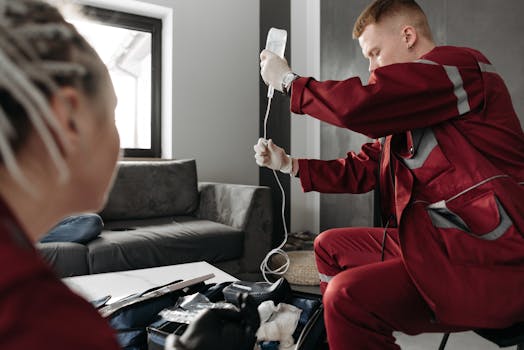You could take a college course, which may help you when looking for work.
Courses include:
- care
- health and social care
- T Level in Health
Entry requirements
Entry requirements for these courses vary.
Ambulance Care Assistants, sometimes called Patient Transport Service (PTS) drivers, play a crucial role in the NHS by helping to transport patients who are not in an emergency situation but need support getting to and from hospital appointments. Their duties include helping patients in and out of vehicles, ensuring they are safely strapped in, and providing reassurance and basic care during journeys. The role involves working with elderly, disabled, or vulnerable people and often requires lifting and handling skills, as well as good communication and empathy. Ambulance Care Assistants may also be responsible for keeping their vehicle clean and well-stocked, and for completing simple paperwork related to patient journeys.

Ambulance Care Assistants in the UK typically start on NHS Band 2, with salaries ranging from £22,383 to £24,336 per year as of 2024.
There are approximately 8,000 Ambulance Care Assistants working in the UK, with ongoing demand in both NHS and private sectors.
Ambulance Care Assistants usually work around 37.5 hours per week, which may include evenings, weekends, and bank holidays.

Responsible for safely driving patients with non-emergency medical needs to and from hospitals, clinics, and other healthcare facilities.

Works alongside paramedics, assisting with patient care and providing support during emergency ambulance callouts.
Provides medical support and care for patients who need transport to hospital appointments but do not require emergency care.
Learn what an Ambulance Care Assistant does on a daily basis and the skills needed for the role.
Ambulance Care Assistants mainly help patients who cannot travel to medical appointments on their own, but are not in an emergency. They provide physical assistance, emotional support, and basic medical help if needed. You can find information on NHS careers websites, or by talking to staff at local hospitals or ambulance services.
Consider if you have the personal qualities and physical ability for this role.
This job requires patience, good communication skills, sensitivity, and a caring nature. You’ll also need to be reasonably fit, as you may help lift or move patients. Think about your own strengths and any experience you have in helping or working with people.
Ensure you have the basic qualifications needed for the job.
Most employers expect good GCSEs, especially in English and Maths, but formal qualifications are not always required. Some may ask for a driving licence with a clean record, as driving patient transport vehicles is often part of the role.
Gain experience in a caring or customer service role.
Experience volunteering in a care home, hospital, or with a community transport service can be helpful. This shows you have the right attitude and practical skills for the job. Some ambulance trusts also offer work experience placements.
Look for vacancies with the NHS or private patient transport providers.
Jobs are often advertised on NHS Jobs, local NHS trust websites, or recruitment agencies. Prepare a strong application, highlighting your caring nature, communication skills, and any relevant experience.
Undertake training provided by your employer after you are hired.
Training usually covers safe moving and handling of patients, first aid, infection control, and how to use specialist equipment. You may also shadow experienced staff before working independently.
Explore relevant apprenticeships that can help you kickstart your career in Ambulance Care Assistant. Apprenticeships offer hands-on experience and training while earning a wage.
An Ambulance Care Assistant and a Care worker both provide support and care to individuals in need, often within health and social care settings. They generally require similar skills in assisting with daily activities, ensuring patient comfort, and maintaining safety and wellbeing.
You can get into this job through:
You could take a college course, which may help you when looking for work.
Courses include:
Entry requirements for these courses vary.
You could apply to do an apprenticeship with a care organisation or the NHS.
Apprenticeship options include:
These can take between 1 and 2 years to complete and combine workplace training with study in the classroom.
There are no set entry requirements but it may help you to get in if you have:
You can volunteer with an organisation that supports vulnerable people, like a care home, charity, hospital or hospice. This can help you when applying for paid work.
You can find volunteering opportunities through:
You can apply for care worker jobs directly. If you get the role, you'll be given on-the-job training by your employer.
It's important to be kind, caring and have a respectful attitude towards people who need care and support.
Some employers might want you to have GCSEs in English and maths at grades 9 to 4 (A* to C), or equivalent. However, many will offer training to applicants who have the right personal qualities.
Time spent caring for someone you know also counts as having experience in a caring role.
You can find out more about careers in care from:
Explore other careers or use our AI to discover personalised paths based on your interests.
Address
Developing Experts Limited
Exchange Street Buildings
35-37 Exchange Street
Norwich
NR2 1DP
UK
Phone
01603 273515
Email
[email protected]
Copyright 2026 Developing Experts, All rights reserved.
Unlock expert-designed lessons, resources, and assessments tailored for educators. No credit card required.
Claim Your Free Trial →